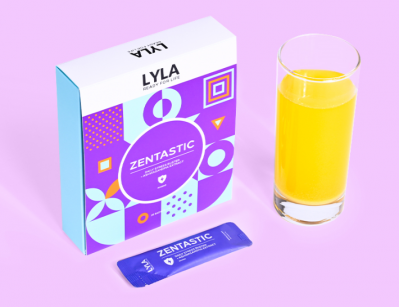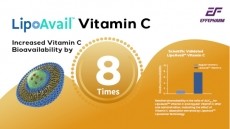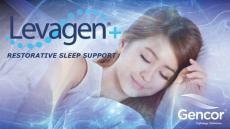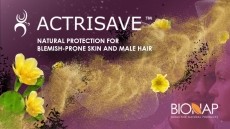Prebiotic for reducing pigmentation: Singapore’s Doki Doki’s unveils latest beauty-from-within puree innovation

Speaking to NutraIngredients-Asia, co-founder Alex Goh said studies have showed that the prebiotic galacto-oligosaccharides (GOS) could reduce hyperpigmentation when ingested.
Its new product, known as Strawberry Acerola GLOW+ Anti-Photoageing Collagen, contains GOS and 2,500mg of type I hydrolysed marine collagen. This an extension to the company's existing collagen products in its beauty-from-within portfolio.
Similar as all other products by the company, the product is made in the form of fruit juice purée, in which strawberry, guava, sugar cane juice, mango, calamansi, acerola cherry, and stevia leaf extract are incorporated.
“We see that while collagen works, we believe that there are other ingredients out there which also work with the skin. Skin health is not just about ingesting collagen to firm the skin.
“There are also other areas that we can look at, especially in Singapore, where we have such a hot sun, we would like to look at how we can reduce dark spots and hyperpigmentation for example.
“We would like to take a more holistic approach when developing skin beauty products,” Goh said.
Citing existing scientific studies, he said that the prebiotic GOS has shown to decrease oxidative stress, photosensitivity, and melanin production in the skin, in turn reducing pigmentation.
One of the studies, a double-blind randomised, and placebo-controlled trial, showed that GOS supplementation had significantly lowered baseline melanin values, while no significant change was seen in the placebo group.
“The evidence is not new, they are actually quite well-known. The question is how many companies have commercialised it and developed a product that is clinically-backed.”
Nonetheless, he stressed that the idea of the product was not to replace sunscreen, but to protect another protection from within the body.
“The idea is that we should still wear sunscreen, but the functional beverage is considered a form of sun protection from the inside.”
As the product is considered a functional juice and not a dietary supplement, there will be no health claims made on the product packaging.
Other commercialised oral UV protection formulas include apple polyphenol by Asahi Breweries, mixed-carotene complex by Excelvite, and rosemary and grapefruit extracts by Monteloeder.
Doki Doki also offers other collagen products under the Glow Series. The products contain 5,000mg of type I hydrolysed marine collagen in either lychee goji, passion dragon fruit, or mango peach flavours.
How it started
Doki Doki, headquartered in Singapore, was co-founded by ex-software engineer Alex Goh. Before starting the business, he held the position of senior manager of marketing in Microsoft where he worked for over six years.
Both he and his wife are superfoods and fruit juice lovers, which subsequently sparked the idea of starting their own business.
“We thought of combining superfoods and tropical fruit juice, because most of the juices out there in the market are typically apple and orange juice.
“As we were doing our product development, we were also very conscious about the amount of carbon footprint that our products may produce.
“We spoke with food packaging experts, and interestingly, we learnt that each beverage bottle emits about 80 grams of carbon dioxide before reaching the consumers.”
Since one-third of the carbon dioxide emitted was produced during the transportation process, with the weight of the products as a key contributing factor, the duo toyed with the idea of removing water from the product.
“We thought of removing water and let the consumers add it back when they are ready to consume the product, which is why we have developed a nectar format, which is somewhat like a puree, packed in a single serving pouch.
“The puree is made with real fruits and contains real fruit pulps without using concentrates.”
Since its founding, the company has been working with The Food Innovation and Resource Centre (FIRC) – a joint initiative between Singapore Polytechnic and government agency Enterprise Singapore – in nutrition and food packaging research.
The company, which also provides OEM services for fruit products, jam, juices, sources its fruits from Vietnam and manufacture its products, including its in-house Doki Doki functional juice in its factory in Ho Chi Minh.
Its Doki Doki functional juice brand also has products for fitness, weight management, as well as a superfoods booster series.
Market strategies
The company entered the Middle Eastern market, specifically UAE and Saudi Arabia last year, and the region is now one of the biggest markets for the company, alongside Singapore and China.
Using the direct-to-consumer approach, the company relies on social media and digital platforms in building its name.
In Abu Dhabi, it has a store in Yas Mall and is in talks with Carrefour and Spinneys in stocking its products in these supermarkets.
Other retail channels selling its products include the Circle K chain of convenience stores, online supermarkets, and Noon.com.
Goh said that about 80 per cent of the consumers were women interested in beauty-from-within products that come in tropical fruit flavours, while men were more interested in products that offer calorie-burning functions.
The trends seen in Middle East are also similar to other markets, where the calorie-burning product, collagen, and soursop chia seeds were the top three bestsellers in the past year.
Other than the UAE, Goh said the company would double down its efforts in China and Hong Kong.
For China, it currently operates a Tmall flagship store and it hopes to expand into the social commerce scene in the first and second tier cities.
“In China, having a flagship store on Tmall and JD is only the first step, it doesn’t guarantee sales, the next thing is about driving traffic to our flagship stores on these sites.
“There are many different ways to do it and we have to explore all of them. There is also social commerce within WeChat (wei shang a.k.a micro stores on WeChat), where there are merchants reselling the products, and we need to look at these models and recruit wholesalers or resellers in the other cities.”
As for Hong Kong, the company previous entered the market via a distributor into supermarket retail.
It has since decided to change its strategy and focus on direct-to-consumer business where social marketing is key.






















